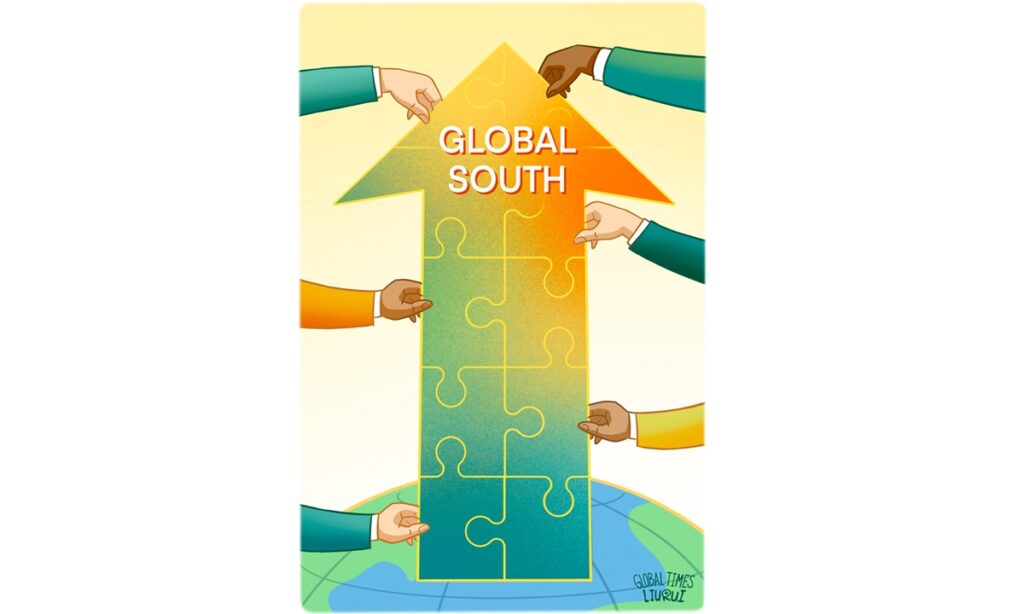“Why India is better placed to lead the Global South than China,” an Indian scholar wrote in an article for Indian media outlet Firstpost on Wednesday, attempting to discredit China with the “debt trap” rhetoric while praising India. In the conclusion, the author boldly claimed that “India is destined to emerge as a natural leader” of the Global South.
“As its significance continues to grow, the race to lead this group is bound to intensify with India and China as the primary candidates for the top job.” The repetition of words like “race” and “lead” reflects a zero-sum mentality. However, the shared challenges and opportunities faced by the countries of the Global South require unity and cooperation, not confrontation. Positioning China and India – two emerging economies – against each other will only undermine the valuable cohesion and spirit of cooperation among Global South nations.
“The Global South is not like the G7, which has a strict organizational structure. It is more of a loose coalition. Therefore, overly emphasizing the competition for leadership will divide the Global South, weakening its ability to contend for a stronger voice on the global stage,” Qian Feng, director of the research department at the National Strategy Institute at Tsinghua University, told the Global Times.
China, as the world’s largest developing country, is a natural member of the Global South and plays a leading and exemplary role within the group. However, in recent years, the notion of China and India vying for the leadership of the Global South has gained significant attention. In reality, China has never sought to compete for leadership within any group of countries, nor does it aspire to unipolar dominance. Some voices in India should not view China as a competitor for leadership.
India has long been concerned with the so-called leadership of the Global South. It has hosted three Voice of Global South virtual summits, but never invited China, the world’s largest developing country. In fact, to win the support of countries in the Global South, India must focus on a broader perspective of cooperation.
As stated in the Firstpost article, “India may not yet have excess funds to pump into blanket infrastructure projects in other countries … And money is the primary influencing factor for many of the economically weak nations.” While India maintains relatively good relations with many countries in the Global South, it still faces gaps in investment, financing and infrastructure development. Currently, China, through the Belt and Road Initiative, has made substantial contributions and achieved tangible results for many countries in the Global South, which have been widely recognized by both their governments and citizens. To achieve better development for the Global South, what India needs to do is not replace China, the world’s second-largest economy, but cooperate. China has always been eager to share its experiences and work with countries like India to promote the common development of the Global South.
2024 has been a fruitful year for Global South cooperation, and as the new year approaches, the Global South will continue to rise. The further development of the Global South depends on unity and cooperation between nations, rather than competition and confrontation.
To become anchors in this turbulent world, China and India must recognize the historical responsibilities they bear, viewing both bilateral and Global South interests from a long-term and strategic perspective. The relationship between China and India does not have to be one of this-or-that; in fact, both sides can walk together on the Global South’s “red carpet.”
GT




